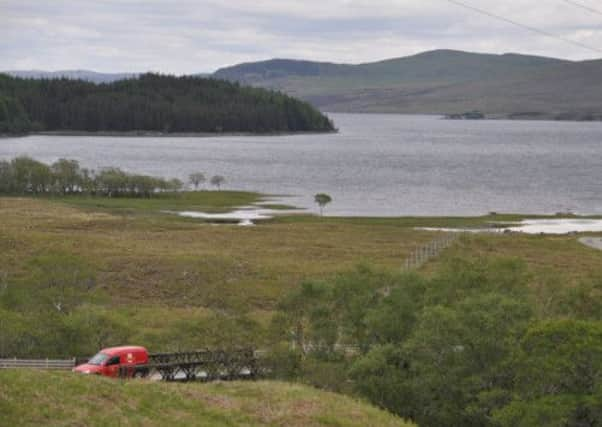Higlands and Islands delivery charges code backed


A new series of guidelines, designed to reinforce the message that delivery pricing policies should not discriminate against customers in remote and rural area of the country, was launched by Fergus Ewing, the Enterprise Minister in the run up to the Christmas parcels rush
The publication of the new code follows the creation of the Parcel Delivery Working Group with watchdog Consumer Futures earlier this year.
Advertisement
Hide AdAdvertisement
Hide AdThe guidelines urge retailers to avoid charging disproportionate costs for delivery, and recommend that where there are geographical delivery restrictions, alternative arrangements should be put in place.
Mr Ewing said: “It is particularly fitting that we have launched these principles as parcel delivery operators prepare for their busiest time of year. We would encourage retailers to take on board these guidelines and in turn customers, particularly in the Highlands and Islands will receive a fairer service.
“The guidelines reinforce the message that delivery pricing policies should not discriminate against customers on the basis of their location.”
Trisha McAuley, Director for Scotland at Consumer Futures, welcomed the publication of the voluntary code. She said: “Many people in rural areas are left empty-handed or out of pocket when they try to order something online, often faced with companies refusing to deliver or high surcharges and a lack of information until late in the buying process”
She continued: “These new guidelines are designed to spread best practice among retailers, so that people in rural areas, in particular, are not disadvantaged. It’s a win-win for consumers, businesses and the economy and a good example of different sectors working together to improve services. Gordon Robb, Highland Council’s Trading Standards Manager, said: “The issue of delivery charges continues to be a significant issue for our remote communities and for the local authority trading standards services that serve them.
“Going forward the existence of these agreed principles will be promoted whenever possible in any interactions Highland Council and other Scottish Local Authority Trading Standards services have with business, in the hope that in time they will be seen as a recognised standard of good practice across the industry.”
David Richardson, Highlands and Islands Development Manager for the Federation of Small Businesses, also praised the scheme. He said: “The charges levied against customers for parcel deliveries to remote and rural Scotland, including the Highlands and Islands, have been a source of irritation and frustration for communities and businesses in these areas for many years.
“The FSB is delighted to join the Scottish Parcel Delivery Working Group to try and get to grips with this issue. We look forward to developing a solution which works for everyone involved, including distance-selling small businesses in Scotland and across the UK.”
Advertisement
Hide AdAdvertisement
Hide AdMargaret Lynch, the chief executive of Citizens Advice Scotland said: “It’s been three years since we started our campaign on this issue. Initially it was Skye and Lochalsh CAB who first started asking people in their community how the problem had affected them. Then other rural CAB offices picked up their campaign and it was clear we had really touch an issue of huge concern.
“When we made it a national CAB campaign, we had over 3,000 Scots telling us how they had been hit by misleading websites, poor service and unfair fees. That’s the biggest response to any survey we have ever ran, on any issue.
“Since then we have worked with lots of other consumer groups and partners, and there has been a lot of progress, and we’re pleased that Ministers and the industry are now taking the issue so seriously. “
• The full statement is available here